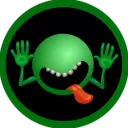- cross-posted to:
- privacy@lemmy.ml
- cross-posted to:
- privacy@lemmy.ml
With everything going on with Twitter and Reddit I feel like I have a new appreciation for having my own local knowledge base on Logseq.
Demo page: https://demo.logseq.com
Logseq is fantastic.
The outline approach is great for quick note contributions without worrying about the look of the notes you’re trying to capture. Writing journal entries or pages is so seamless, and linking is so easy. Block references are also a powerful addition.
The mobile version is lacking compared to say obsidian, but I’ve found it good as I’m not focused on propping up the application, rather focusing on my content/notes.
Thank you for your feedback
yoink
I am using this now
I love Logseq! When I first started using it, I was categorizing all my notes as I was slowly moving over my knowledge base. And over time, I’ve switched over to using the Journal more and more! It’s extremely well done.
deleted by creator
I don’t really care much for plugin support on mobile as I can see it could cause more issues than help. I do hope the mobile app gets better though.
Obsidian manages ok and the utility there is pretty huge. Particularly some of the touch specific plugins.
Thanks for this friend
I remember this being marketed as the Emacs Org mode + Org Roam combo for the masses, which is totally fine. However, if you want true control over your data and you’re willing to step out of your comfort zone, consider using Emacs + Syncthing
you have complete control over your data with logseq.
Yeah my bad, I should rephrase it to “true control over the note-taking experience”. With Emacs, you don’t need Internet connection or a web browser (or a sandboxed wrapper) to access your notes, plus you can take notes in the same environment you write code/emails/read books, which means you can share all your settings.
The files are stored as markdown or org files. You can also use another editor if you want. Also you do have full control. You don’t need a browser. Logseq is a stand alone and offline app.
I had no idea such a thing existed, thanks for posting! I currently use Notion at work, which is similar, but this looks promising for home use.
Love Logseq for a lot of reasons, but their PDF annotator is really a gamechanger. I can open a PDF, mark it up, copy the highlighted reference to my notes, and then when I review my notes just by clicking the copied reference I can jump to that section of the PDF. Awesome.
Another alternative, admittedly not open-source, is Recollectr (disclaimer: built by me.)
Recollectr was inspired by prior projects like Notational Velocity but aims to be a lot more - omnibox, markdown support, reminders; and for paid users: revisions, note-linking, and sync. I built it because I felt like other note-taking apps just weren’t fast enough and they broke my concentration.
It’s quite late here but I’d be happy to answer any questions tomorrow!
I was just checking out the site on my iPad. Only the top image loads and the rest are white boxes. I disabled all content blockers and reloaded but the problem persisted. It might still be a local problem, but now you have a heads-up that something MIGHT be wrong.
Thanks very much for letting me know; I’ll look into this! They’re all videos so perhaps there’s some encoding issue with Safari on iOS.
i’d never heard of this concept! i have a disorganized stack of markdown files - notes, to-do and packing lists - that this looks ideal to tame
This looks intriguing! I currently use BookStack as a documentation platform, but it seems Logseq might be a step above something like BookStack?
Using it and I love it! Can definitely recommend it!
For those just glancing through: what would you define “knowledge management” as?
The the Wikipedia article on personal knowledge management is a little dense, but basically it’s a way to keep track of everything you learn or consume and link them together to develop new ideas or insights. Sometimes people will call it a second or digital brain. There’s a lot of different ways to do it, and recently there’s been a lot of software like Logseq, Obsidian, and Notion, that facilitates linking everything together and keeping it organized using [[hyperlinks]] and #tags among other things.
so to really dumb it down, is it basically like a digital version of a paper notebook, except that it can do more stuff?
The simplest forms are. Except hyperlinks are super powerful and unlike paper you can restructure and recomnect as you see fit. Since it is computer software, you can also get other benefits like a working to do-list next to your medicine list or machine learning indexing and cross-referencing your documents. Take a look at the Devonthink website for an idea of how idea management on steroids look. On the other end of the spectrum you have things like Obsidian where everything is simply stored in pure markdown text and synced by you how you see fit. There’s a solution for every temper these days.
Ehhh. Kinda? The feature that differentiates it from a normal notebook is the ability to link pages. You’re basically constantly searching for connections while building your own personal Wiki.
knowledge management refers to how to organize, store, retrieve, and use information.
In the context of personal knowledge management using tools like Logseq, the definition could be something like this:
Personal Knowledge Management (PKM) is the practice of capturing, organizing, and making sense of one’s own observations, ideas, and experiences to understand and share knowledge. It’s about creating a system that allows you to capture thoughts and ideas easily, make connections between different pieces of information, and retrieve and use this knowledge effectively.
For example, if you’re learning a new topic, you might read a variety of sources and take notes in Logseq. Over time, you’d review and refine these notes, connecting new insights to existing ones, creating a rich, interconnected knowledge base.
So is it like a cross between journaling and citation management software? I’m trying to figure out what proponents are getting out of this above what I get from just bookmarking interesting sites.
If it helps you to visualize, one somewhat common/popular form of personal knowledgment management is a wiki. Like Wikipedia, except it’s personal (or for a small team). You can keep track of references and also make notes about things, but it’s also about connecting ideas together. Just like on Wikipedia, you can have a page about, let’s say LLMs, which includes all the software and approaches you’ve tried, results, sample snippets, references to repos, but as you’re writing about what you’ve tried and what worked, you might also have links to other wiki pages, like programming languages, build tools, test tools, etc. As you document more and build more knowledge, your articles all get meshed together in one well-organized network. Ideally it should be easy to navigate if you come back to a technology later and need to get back up to speed.
How does this compare to Org-mode? Notable pros/cons?
It actually supports org mode syntax!
Currently use Standard Notes to dump, in a semi-organized way, kind of everything from jottings to links, recipes, lists, ad hoc wiki (e.g. for how to use kbin).
Is Logseq, or Obsidian, a step further from this? Say, with greater ways to interact with what I collect?
I don’t use standard notes, but from what I know, the base idea is similar, but they really differ. It’s hard to explain. It’s the same as asking what the difference is between Notepad++ and Notepad since both can edit text.
I really recommend downloading logseq and giving it a shot, the best way to see what it can do.














